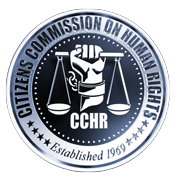A DOCUMENTARY
THE HIDDEN ENEMY
Inside Psychiatry’s Covert Agenda
EXPOSES THE COVERT OPERATION BEHIND MILITARY SUICIDES
In early 2013, the official website of the United States Department of Defense announced the startling statistic that the number of military suicides in 2012 had far exceeded the total of those killed in battle—an average of nearly one a day. A month later came an even more sobering statistic from the U.S. Department of Veterans Affairs: veteran suicide was running at 22 a day—about 8000 a year.
The situation became so dire that the U.S. Secretary of Defense called suicide in the military an “epidemic.”
Some have claimed that this spate of self-harm is because of the stresses of war. But the facts reveal that 85% of military suicides have not seen combat—and 52% never even deployed.
So what unsuspected factor is causing military suicide rates to soar?
According to the new documentary The Hidden Enemy: Inside Psychiatry’s Covert Agenda, all evidence points in one direction: the soaring rates of psychiatric drug prescribing since 2003. Known medication side effects of these drugs such as increased aggression and suicidal thinking are reflected in similar uptrends in the rates of military domestic violence, child abuse and sex crimes, as well as self-harm.
Pull the string further and you’ll find psychiatrists ever widening the definitions of what it means to be “mentally ill,” especially when it comes to post traumatic stress disorder in soldiers—and PTSD in veterans. And in psychiatry, diagnoses of psychological disorders such as PTSD, personality disorder and social anxiety disorder are almost inevitably followed by the prescription of at least one psychiatric drug.
Psychiatrists know that their drugs do not actually cure anything, but merely mask symptoms. They are well aware of their many dangerous side effects, including possible addiction. However, they claim that the risks of the medication side effects are exceeded by their benefits. And while the soldier’s real problem goes unaddressed, his health deteriorates.
In the face of these grim military suicide statistics, more and more money is being lavished on psychiatry: the U.S. Pentagon now spends $2 billion a year on mental health alone. The Veterans Administration’s mental health budget has skyrocketed from less than $3 billion in 2007 to nearly $7 billion in 2014—all while conditions continue to worsen.
The Hidden Enemy reveals the entire situation in stark relief, while urging that soldiers and vets become educated on the true dangers of psychiatry and psychiatric drugs. The answer lies in their right to full and honest informed consent—as well as exercising their right to refuse treatment. Our service members need to know there are safe and effective non-psychiatric solutions to the horrors of combat stress, and that these solutions will not subject them to dangerous and toxic treatments that will only send their health spiraling downward.












